March of Independence / Marsz Niepodległości
March of Independence / Marsz Niepodległości
At the beginning of November 1918 Poland regained independence after more than a hundred years of nonexistence as a state. The annual March of Independence, taking place on the Day of Independence, passed through the streets of Warsaw on 11 November. This year, 250,000 people participated in the event, breaking the record of attendance at the march since its beginning. One can argue about the ideas of the march, the groups involved and the slogans they proclaim. After this year's march, however, we cannot speak of it as a marginal event, gathering only extreme, nationalist or even fascist circles. This year's Independence March was attended by 250,000 people of different ages, with different political views; families with children, youth and students, elderly people, etc., united to celebrate the 100th anniversary of gaining independence by our country.
Na początku listopada 1918, po ponad stuletnim okresie nieistnienia jako państwo, Polska odzyskała niepodległość. 11 listopada ulicami Warszawy przeszedł odbywający się co roku w dniu Święta Niepodległości - Marsz Niepodległości. W tym roku w wydarzeniu uczestniczyło 250 tysięcy osób, bijąc tym samym rekord frekwencji na marszu od początków jego istnienia. Można spierać się na temat idei marszu, uczestniczących w nim środowisk i haseł przez nie głoszonych. Po tegorocznym marszu nie można jednak mówić o nim jako o wydarzeniu marginalnym, skupiającym wyłącznie środowiska skrajne; nacjonalistyczne lub wręcz faszystowskie. W tegorocznym Marszu Niepodległości szło 250 tysięcy ludzi w różnym wieku, mających różne poglądy polityczne; rodzin z dziećmi, młodzieży i studentów, emerytów, itd., zjednoczonych w ramach świętowania stulecia odzyskania niepodległości przez nasz kraj.
From the very beginning, the Independence March was organized by nationalist circles and is considered controversial. Starting from slogans and banners to clashes with the police. I do not intend to write here about the history of the March. However, before you issue an opinion on it, please watch the documentary about it - "The History of the One March".
Marsz Niepodległości od początku organizowany był przez środowiska nacjonalistyczne i wiążą się z nim kontrowersje. Począwszy od haseł i transparentów po starcia z policją. Nie zamierzam tutaj rozpisywać się o historii marszu. Zanim jednak wydacie na jego temat opinię, obejrzyjcie proszę"Historię Jednego Marszu".
This year the Mayor of Warsaw - Hanna Gronkiewicz-Waltz banned the Independence March. Her decision was overturned by the District Court. Nobody knows what will be the future of the March. History, however - especially the recent events, shows that the March cannot be easily stopped, and all actions against it only makes it gain supporters and grow in strength.
W tym roku prezydent Warszawy - Hanna Gronkiewicz-Waltz zakazała Marszu Niepodległości. Jej decyzję uchylił Sąd Okręgowy. Jaka będzie przyszłość Marszu, tego nie wie nikt. Historia, a zwłaszcza ostatnie wydarzenia, pokazuje jednak że Marszu nie można od tak zatrzymać, a wszystkie działania przeciwko niemu tylko sprawiają, że zyskuje on zwolenników i rośnie w siłę.
| Camera | Nikon D3100 |
|---|---|
| Lens | Pentacon Electric 50mm, f/1.8 |
| Location | Warszawa, Poland |
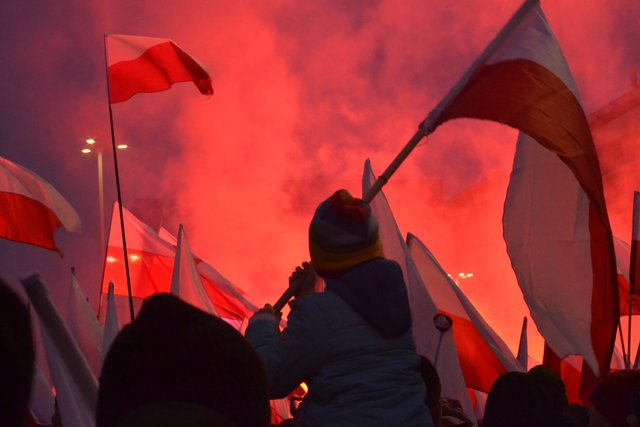
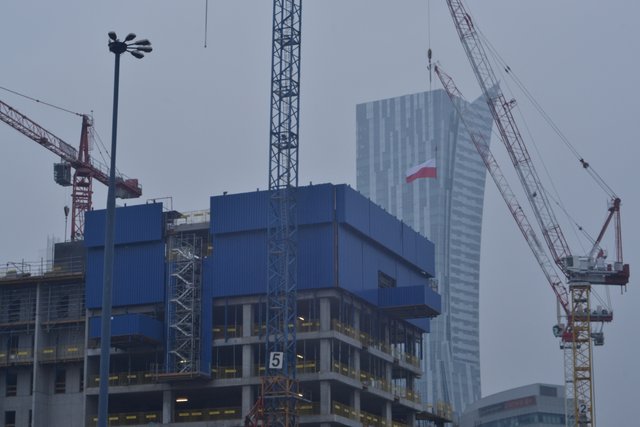
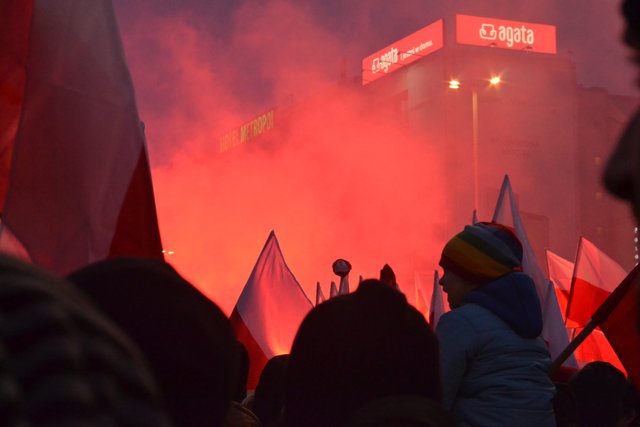
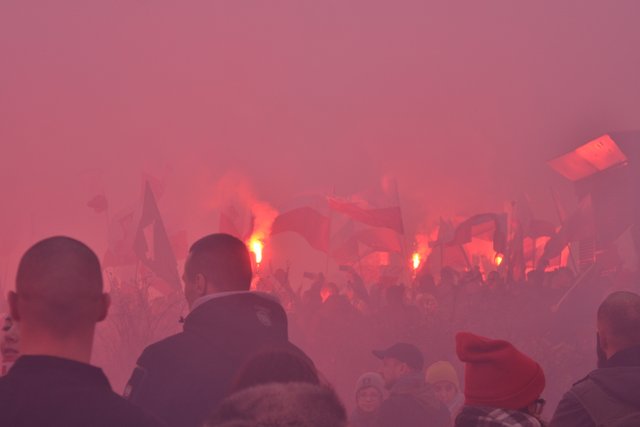
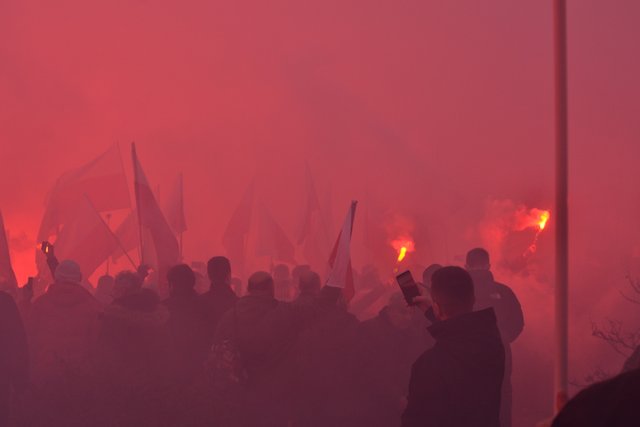
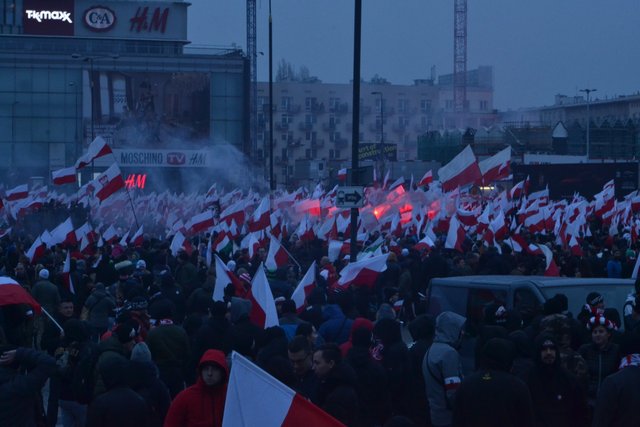
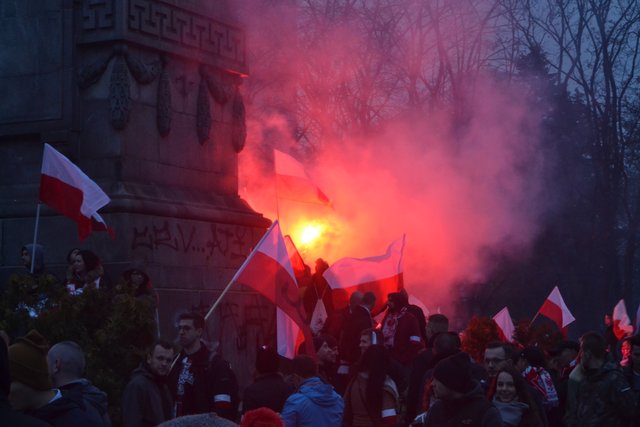
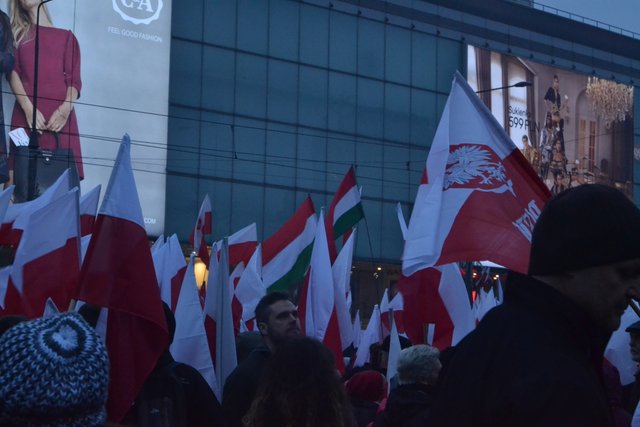
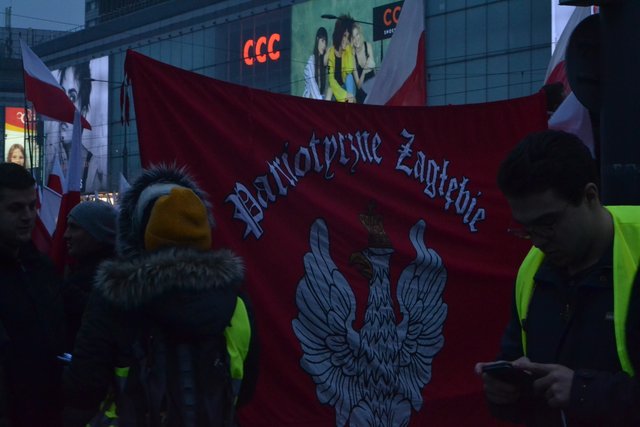
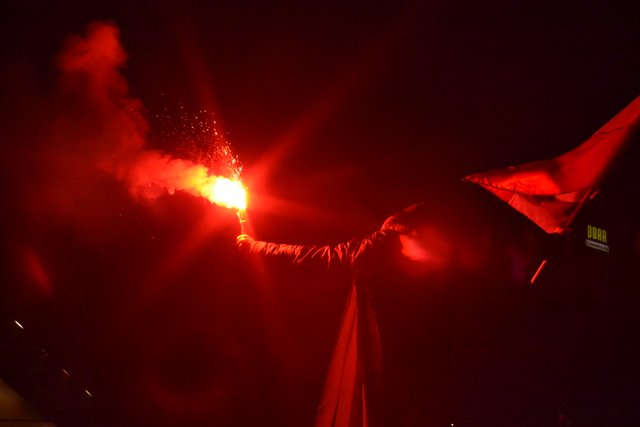
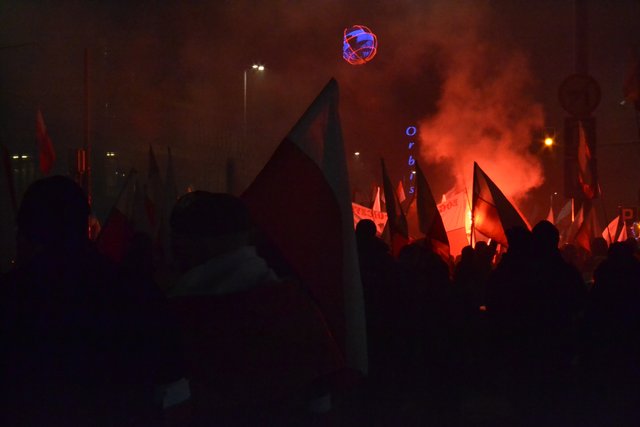
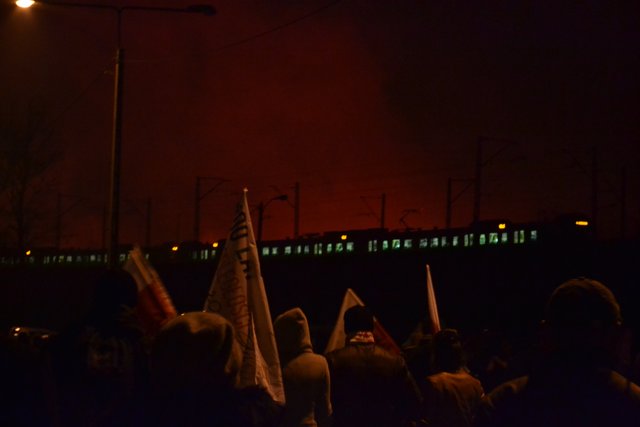
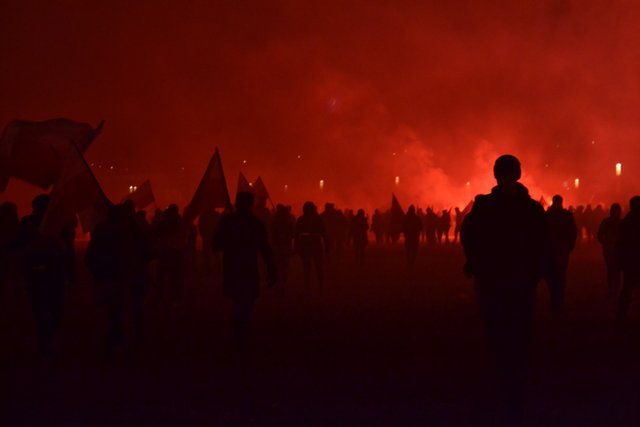
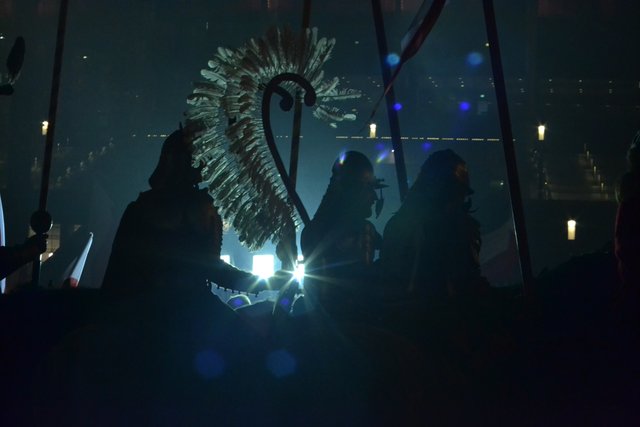
Popraw, 11 listopada to data umowna. Polska ogłosiła niepodległość i powołała pierwszy niezależny od zaborców rząd 7 listopada 1918, 11 listopada rząd ten oddał władzę Piłsudskiemu.

Could this March, or one of its dimensions, be considered “a declaration of Independence” towards EU? :)
While some of the groups participating in the March are anti-EU, it's not the main theme of the March of Independence. Damn, we had even some Monarchists marching with the banner "May God restore catholic monarchy in Poland". Burning of the EU flag should rather be seen as a sign of protest against EU policies. More and more people notice the problems within EU that needs reforming, but not necessarily "PolExit".
We are preparing also for 100 years commemorative display of forces. It's on 1'st of December and it's going to be the celebration of 100 years since the Unification of the country (as a result of WWI). Most likely we will see demonstrations towards embracing the EU (as the politicians in power are trying to distance Romania from the EU). That's why I've asked you... more or less, we were presented a March of Nationalism in Poland, by the media outlets here.